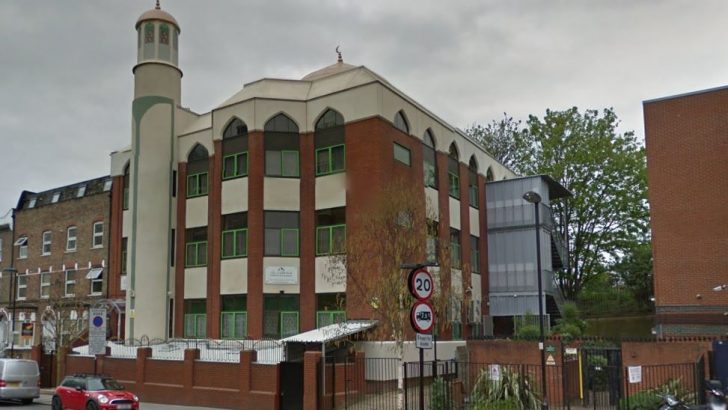Political rhetoric is becoming more and more divisive, more and more extreme. Mere disagreement is becoming rarer. What’s become commonplace is hurling anathema at those you disagree with. It’s not merely that a person is wrong, it’s that they must be wicked because they are wrong.
In the field of religion, intense disagreements, sometimes turning violent, have a name: sectarianism. Religion can inspire huge passions, for good or ill. It can inspire people to the most heroic deeds, or it can inspire violence and fanaticism. When you think God is on your side, and the other person is literally ‘anti-Christ’, that spells trouble.
This same spirit of ‘sectarianism’, of fanaticism, is finding its way into politics again. Last week in the US, a left-wing activist, a supporter of socialist Senator Bernie Sanders, opened fire at a baseball practice intending to kill members of the Republican party team who were getting ready for a match with Democrats.
Among those shot was Steve Scalise, the Congressional whip for the Republican party. This attack received very little coverage here in Ireland. Would it have received so little coverage if the attack was on Democrats and was conducted by a Donald Trump supporter?
Trump himself doesn’t help matters with his overheated rhetoric. His opponents talk increasingly of ‘resistance’, with its implication of violent resistance. Already there have been violent incidents on American campuses by opponents of President Trump.
Disagreement
Social media isn’t helping matters. The most extreme statements on the likes of Twitter get the strongest reactions. The secular left dominate political discussion on Twitter. They consistently demonise their opponents as ‘bigots’. Again, mere disagreement is becoming impossible. Your opponents are not merely mistaken; they are evil and must be crushed.
The most violent phenomenon in the world today is, of course, radical Islam. It is tearing apart much of the Muslim world and the violence is now appearing on the streets of some of our major towns and cities.
On Monday, we witnessed the first major backlash as a man drove a van into Muslim worshippers at Finsbury Park mosque in London, a despicable act and the first of its kind.
Is this a sign of coming inter-religious violence in Western countries, of Muslims against Christians and vice versa? It is unlikely in extreme.
First of all, it is highly unlikely that the attacker in this case was inspired in any way by Christian faith. He is more likely to be simply an anti-Muslim bigot. But even if, for the sake of the argument, it turns out that he is a Christian fundamentalist, will police discover a church somewhere in England that is radicalising its worshippers and encouraging anti-Muslim violence? We already know the answer to this question.
This didn’t stop Harry Potter author JK Rowling saying on Twitter: “Let’s talk about how the Finsbury Park terrorist was radicalised”, and pointing the finger of blame directly at anti-EU campaigner, anti-mass immigration campaigner and former UKIP leader, Nigel Farage.
Note that she was not pointing the finger of blame at Christian leaders but at a politician. Still, Rowling’s tweet was an excellent example of how over-heated much of the political rhetoric in Britain and elsewhere has become.
Farage had never incited anti-Muslim violence. He just thinks that mass immigration in general is bad for society. Rowling’s tweet is a classic attempt to shut down debate on a matter she doesn’t want debated by demonising anyone who wants to slow down immigration.
This is as bad as directly blaming supporters of mass immigration for the ISIS-inspired attacks in London, Manchester, Paris, Brussels and elsewhere.
It is obvious that it is certain communities that are producing Islamist extremists, and not others, but it would be completely unfair to put blood on the hands of say, Tony Blair, who was a big supporter of mass immigration.
It is also interesting to note that following the Manchester and London outrages we were told not to point the finger of blame at anyone or anything, least of all Islam itself, but on this occasion anti-mass immigration politicians are being directly blamed.
This is despite the fact that there are mosques in Britain and elsewhere that are radicalising young Muslims, which is a very big problem.
In addition, radical strains of Islam are more widespread than we care to admit. The most important Sunni country in the w versions of their branches of Islam. This is also a very big problem.
Rhetoric
What’s the answer? Part of the answer is to tone down the rhetoric. This is not the same as saying we can’t strongly disagree with each other and have noisy rows over a drink about politics and religion.
Toning down the rhetoric means not demonising each other, not assuming that because we think those we disagree with are wrong, they must be wicked as well.
An extreme example of this is obviously radical Islam. Unbelievers in this view deserve nothing less than demonisation and also deserve death in certain circumstances. In this view, there are no innocent ‘infidels’ because we all conspire against Islam and therefore deserve whatever is coming to us.
What happened at Finsbury Park mosque is another example of this and so is the shooting of Republican Congressman, Steve Scalise.
But we shouldn’t wait until extreme rhetoric spills over into violence before condemning it, we have to tone down any and all rhetoric that demonises anyone and everyone we disagree with.
Good faith disagreements have to become possible again. You’re not evil if you are for or against abortion, or same-sex marriage or religion. You might be wrong, that’s all. Good people can be wrong.


 David Quinn
David Quinn Finsbury Park Mosque in London
Finsbury Park Mosque in London 